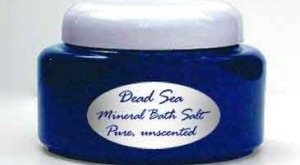0203 397 8891
Open today: 9:00am - 6:00pm

by Dr. Sarah Brewer
A Nutritionist and Doctor
Tigers need 16 hours sleep, monkeys snooze for 10 hours, African elephants require four hours while giraffes make do with two. In contrast, the average human spends six to eight hours out of every 24 in the land of nod, though many awake feeling less than refreshed.
Poor sleep affects most of us at some point, and may involve difficulty falling asleep, inability to maintain an adequate amount of sleep, waking earlier than you would like, or simply waking feeling unrestored. Surveys suggest as many as one in three people is affected, around half of whom also experience anxiety – either as a cause or a result of sleep difficulties.
Avoid napping during the day and overindulgence in substances that interfere with sleep such as caffeine (coffee, tea, chocolate, colas), nicotine, alcohol and rich or heavy food – especially close to bedtime.
Sprinkle a few drops of lavender essential oil on a cotton wool pad near your pillow, or invest in a lavender-scented pillow. Inhaling this natural sedative oil can help your relax and improves sleep.
 |
 |
Have a bath containing Dead Sea mineral salts. These contain magnesium which is absorbed through the skin for a muscle-relaxing effect that promotes sleep.
Regular exercise during the day is important, but avoid vigorous exercise in the evening which will have an alerting effect.
If you can't sleep, get up and read for a while. Write down any worries and promise yourself you'll deal with them in the morning. When you feel sleepy, go back to bed and try again. If sleep does not come within 15 minutes, get up and repeat this process.
Valerian is a traditional herbal remedy that reduces anxiety and helps to improve sleep quality.
Rhodiola helps to relieve stress-related fatigue and exhaustion when anxiety is at the root of a sleep problem.
5-HTP provides building blocks for making melatonin, your natural sleep hormone.
Magnesium deficiency is common, and supplements may improve sleep quality where magnesium intakes are low.
Join our mailing list to receive the latest news, offers & £50 off your first holiday.